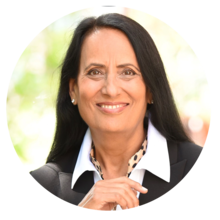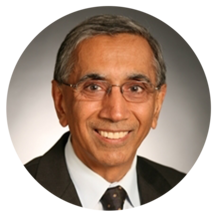About this Presentation
This presentation discusses the scope of medical errors and compares the number of deaths from medical errors (98,000) to traffic deaths (43,000), deaths from cancer (42,500), and deaths from AIDS (16,500). Patient case studies are described illustrating the causes of medical errors. The thinking processes (TP) are used to analyze this medical errors case; to develop a solution to prevent the errors; and to establish consensus among medical professionals. Several undesirable effects (UDEs) were surfaced related to the medical errors; the three-cloud approach was used to build a generic core conflict cloud. This cloud was comprised of objective (A) To provide high quality (e.g. timely and safely) care for each patient; (B) Respect autonomy of each professional to maximize their activities; (D) Work independently and have the responsible physician manage patients; (C) Reduce risk of medical errors and check the status during the process; and (D’) Work as a team based on standardized processes. The current reality tree was built connecting all UDEs. The assumptions of the core conflict cloud were surfaced and injections identified. The future reality tree was constructed to achieve the desirable effects based on the injections.
What Will You Learn
To help you get the most value from this session, we’ve highlighted a few key points. These takeaways capture the main ideas and practical insights from the presentation, making it easier for you to review, reflect, and apply what you’ve learned.

Medical errors are a significant issue in healthcare, causing up to 98,000 deaths per year in the United States alone.
The speaker suggests using the Theory of Constraints (TOC) as a method to prevent medical errors, specifically in the prescription switch process.
The speaker presents a case study to illustrate the problem and discusses how TOC can be applied to solve it.
Instructor(s)
Jennifer Eckman

Ms Alka Wadhwa
Alka Wadhwa is an experienced consultant and process improvement expert with over 24 years of expertise in the Theory of Constraints (TOC), Lean Six Sigma, and organizational performance optimization. She has successfully led projects in healthcare, financial services, and manufacturing, driving significant improvements such as a 67% boost in hospital operations and a 140% increase in outpatient visits.
Previously, Alka Wadhwa spent 17+ years at GE Global Research Center, where she led initiatives to enhance various GE businesses through advanced technologies, process redesign, and system optimization. Founder of Better Solutions Consulting, LLC, she specializes in using TOC, Six Sigma, and data analytics to streamline operations and build high-performance teams.
Her work has earned her multiple accolades, including the Empire State Award of Excellence in healthcare.

Dr Gary Wadhwa
Dr. Gary Wadhwa is a Board Certified Oral & Maxillofacial Surgeon with extensive experience in the field. He completed his Oral & Maxillofacial Surgery training at Montefiore Hospital, Albert Einstein College of Medicine in Bronx, NY, and has served as an Attending at prestigious institutions like St. Peters Hospitals, Ellis Hospital, and Beth Israel Hospital in NY. With a career spanning over two decades, he was the former CEO and President of a group specialty practice in NY from 1994 to 2015. Dr. Wadhwa holds an MBA from UT at Knoxville, TN, and has undergone additional training in System Dynamics at MIT, Health System Management at Harvard Business School, and Entrepreneurship and healthcare innovations at Columbia Business School. Committed to expanding access to Oral & Maxillofacial Surgery care, he is currently engaged in a meaningful project to provide healthcare services to underserved populations in inner city and rural areas through non-profit Community Health Centers.
